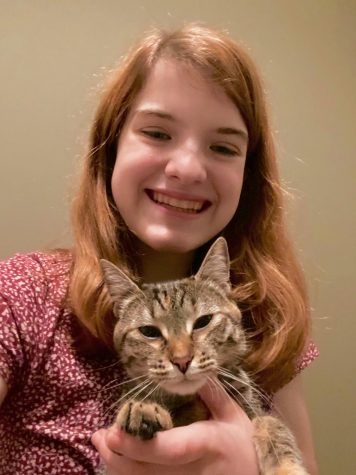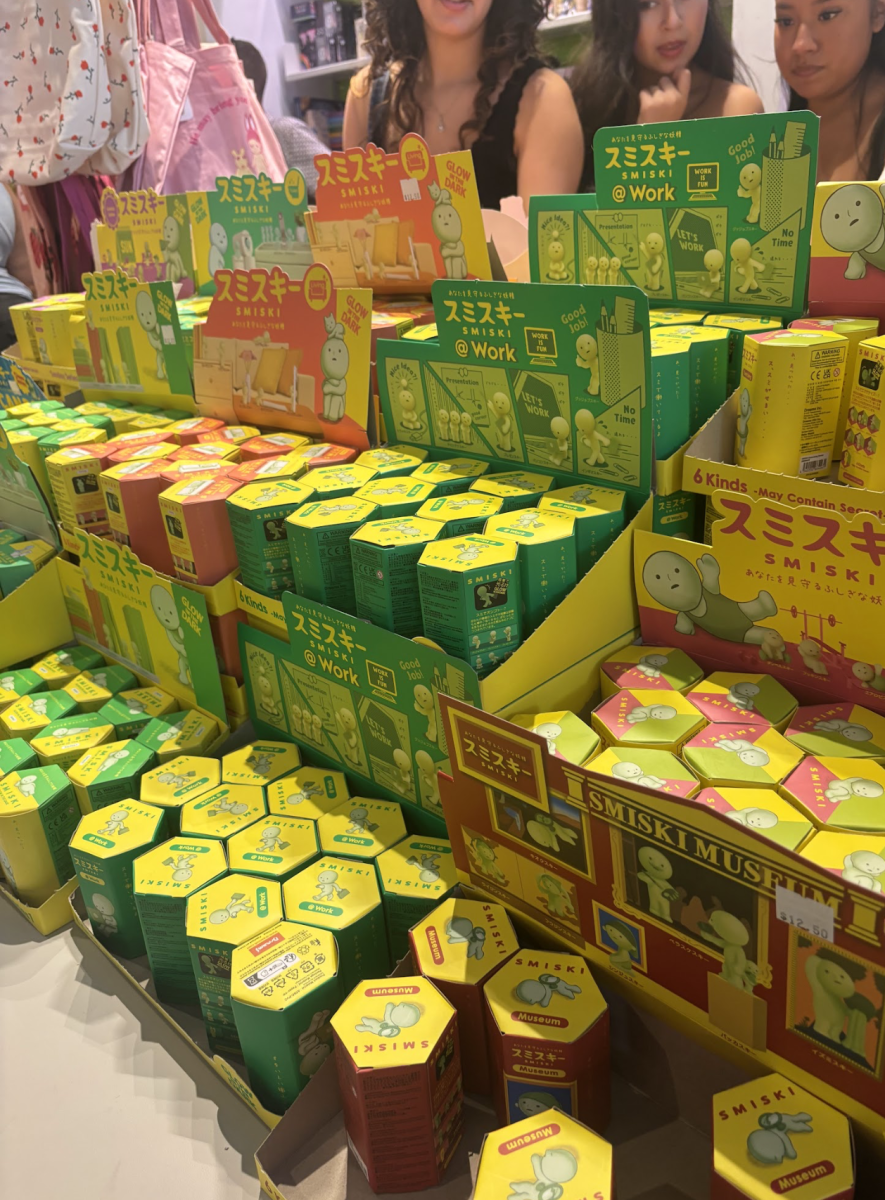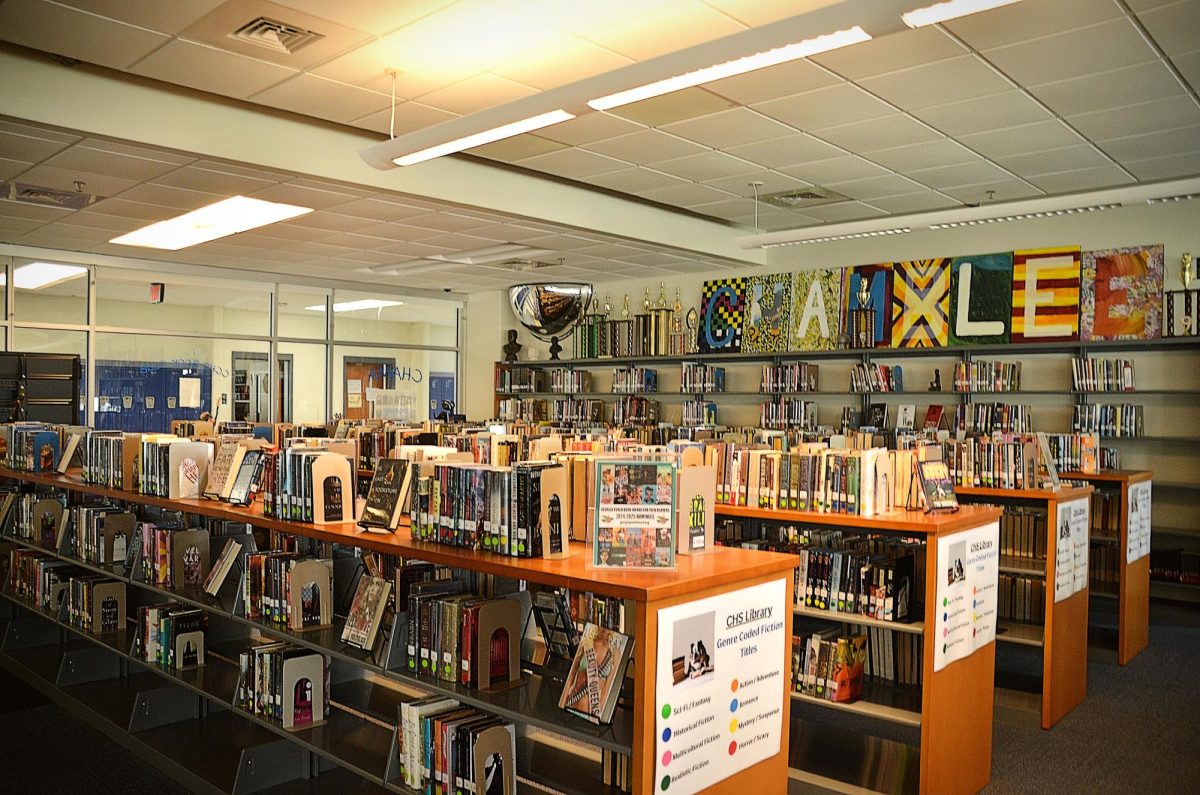Women in STEM Blazing New Trails: Stephanie Espy
Photo courtesy of Stephanie Espy.
Stephanie Espy, founder of the STEM Gems program for Girls in STEM and MathSP.
May 2, 2019
As high schoolers move swiftly toward college, it is challenging to figure out how to navigate your own journey, and in STEM [science, technology, engineering, and math] fields, having a strong role model can make all the difference. Role models in STEM reveal the creativity and freedom of the field and help students become curious about diverse and far-reaching subjects.
Stephanie Espy, an entrepreneur and Atlanta resident, is seeking to fill this need by providing high schoolers, especially girls, the role models they need to pursue STEM fields with confidence and gain fluency in the subject.
Espy is the founder of MathSP (Strategies and Problem-Solving), a STEM-focused academic coaching company, and STEM Gems, an organization dedicated to empowering girls through opportunities and resources. Espy, who is an MIT graduate and engineer, became passionate about academic coaching starting in high school. Espy earned a master’s degree in chemical engineering at the University of California, Berkeley, and an MBA from Emory University. Today, she is working with the students of Atlanta daily to empower them to explore the options that STEM provides.
“It really takes just one person, just one experience to make [STEM] come alive,” said Espy.
Espy seeks to fill that need for students with the opportunities she provides through STEM Gems.
“It’s a combination of a STEM Gems club, a STEM Gems book, and resources to help girls in particular to explore and be exposed to careers in STEM,” said Espy. “There are 44 different careers in STEM that the STEM Gems club highlights and it’s all about exposing girls to these careers and also giving them female role models, so they can see themselves in these careers through the stories of the women that represent those careers.”
Espy herself was frequently exposed to STEM when she was young.
“Both of my parents are engineers, so they obviously had a lot of influence on me growing up,” said Espy. “In addition to my parents, I have uncles and aunts who are engineers and scientists, so I have a pretty extensive STEM family. Math and science have always been something that my family gravitated towards, so it was something that I was really good at early on and really enjoyed in elementary, middle and high school.”
She was able to see the possibilities of math through parents and teachers.
“I always loved math and saw the applications of math very early on, so it was more than just classroom learning,” said Espy. “I saw how math could be used in the real world through my parents and the things that they did at home. […] In addition to my family, […] I really enjoyed my math and science classes a lot. I’ve always had fantastic teachers.”
In high school, Espy was drawn to chemistry.
“I was interested in math and chemistry specifically. I took physics and I took biology and other science classes, but chemistry was the one that stood out the most,” said Espy. “When I went to college, I majored in chemical engineering because it was a really good combination of both chemistry and math.”
In college, Espy furthered her interests by participating in internships.
“Every summer [in college], I was doing an internship in my major,” said Espy. “It gave me a lot of really good exposure. It got me some hands-on experience. I was able to meet people working in the field and understand more about how a career in engineering really helps make a difference in the world. Internships were invaluable experiences.”
Espy also sought out other opportunities during college. These internships, as well as undergraduate research opportunities and project-based design events, were very valuable for her.
“I did research opportunities through my college, so I worked in different professors’ research labs and got to know the graduate students and postdocs in the lab and really got a chance to do some hands-on research,” said Espy. “I also did lots of project-based learning opportunities in college, different opportunities to design and build a prototype.”
Throughout her educational career, Espy faced obstacles due to her perspective as a woman in the field. One of these experiences involved her first internship at a manufacturing plant.
“My first internship was the summer after my freshman year of college. In that internship, I was the only female engineer and I was an intern, so I wasn’t even a real engineer at the time,” said Espy. “The other engineers at this particular manufacturing plant where I worked were all men. I just felt that was very puzzling. Why are there no other women in engineering at this plant?”
Espy often felt isolated during this internship.
“The operators who ran the plant were also all men, so I was surrounded by men,” said Espy. “That was my first experience feeling a gender imbalance. Now, a lot of the men were really nice to me. I had two mentors that were both men, and they really kind of embraced me and showed me around when I needed their help. That was good, but I felt very isolated and lonely a lot of the time because I was the only woman.”
Espy did not face similar experiences at her college, but she acknowledges others might notice a gender imbalance in their classes as well.
“In my classes in college, it didn’t feel that way at all because my classes were really diverse, but in the workplace was when it really hit me that this was an extremely male-dominated industry and career, and that was the case for every internship that I’ve had,” said Espy. “That happened for a lot of people even before internships or jobs. It happens for college classes. It didn’t happen for me in college classes because I went to a college that did a pretty good job of recruiting women. The workplace was just completely different, so I started to feel that more as I went throughout college and went into graduate school and thought about what I wanted for my future. That reality is something that has always stayed with me.”
Espy believes the mindset women have when faced with these obstacles has a massive impact on their experiences.
“I think one way to overcome [obstacles] is to recognize that even though you may be the only woman in the room, you still belong in the room,” said Espy. “You just have to embrace that you’re the only one and look at it as an opportunity and not something that’s holding you back. At the time, I was intimidated. I felt very marginalized, but I think that if you have a different attitude, you can approach that with a sense of empowerment or a sense of pride. […] I think if you have a voice or if you assert yourself as a value-add, you can totally change the situation around and make it work for you versus making it something that deters you.”
Espy also sees the value in seeking out support from others in your field.
“Fortunately for me, […] I had mentors that were men, but they were still very helpful and encouraging,” said Espy. “I would have loved to have female mentors as well, but because there weren’t any, I just leaned on the male mentors that I developed, so I think having the men support you and having that mentorship is really key. Even though they are men, you can still create a relationship with them that gives you the support you need.”
Espy believes that women should do their best to recruit other women into their career.
“Sometimes when you’re the only one, you have to do a lot to make sure that you don’t remain the only one,” said Espy. “Get involved in recruitment […] activities and try to actively bring in more women. It has to start with one to get to two and then from two, you can go to three and three can go to four, and eventually, you’ll have more representation, but you always have to have a first. […] If that person is you, that’s an opportunity to break the glass ceiling. That is a much better perspective than shying away from it and deciding from a different direction.”
Espy spends a lot of her time running her business, MathSP, and working directly with students.
“[MathSP] is an academic coaching and test prep coaching business that I started eleven years ago,” said Espy. “MathSP allows me to work with middle schools, high schools, and colleges and help students become more STEM fluent. [My team consists of] all STEM people and we really love STEM and we want to help the next generations who love STEM as well. […] We’re here as academic coaches to help them strengthen their foundation, help them understand how to apply their foundation to the real world and help them have a holistic understanding of STEM and how they can pursue a career in STEM.”
Through her other initiative, STEM Gems, Espy does a lot of event coordinating and public speaking to publicize STEM to girls. For example, she recently hosted an event at the Atlanta Science Festival on March 16. She encourages local groups to join the initiative.
“There are about 60 clubs in different schools and different community organizations like Girl Scouts or YWCA,” said Espy. “It’s pretty simple to start a club, so I encourage schools and community groups to start a club, and they can just go on the STEM Gems website to learn more about how to start a club. […] This is an opportunity [for girls] to learn about women, learn about careers and really see themselves through these [44 profiled] women as adopting and fulfilling their lives also with STEM careers.”
She recommends forming a supportive peer group around STEM.
“I think when you get together with other girls your same age, your peers, that are also considering or interested or thinking about STEM careers, the conversations that you can have are powerful, and that support group that you form through a club like the STEM Gems club is also really powerful,” said Espy. “That in and of itself is why I started the club, especially for that age group. Having [content knowledge] is super important: taking [math and science] classes and getting the tutoring and coaching that you need. But beyond the content mastery, what’s [just as] important is having that support group.”
In addition to content mastery and support, Espy names another thing that she believes is necessary for success in STEM: social persuasion.
“Social persuasion is what happens when you’re in a group, so even if you yourself are not necessarily a hundred percent sure about a career in STEM, once you get around other girls who are really excited about STEM, that persuasion is contagious, so you yourself start becoming more interested, more fascinated, more exploratory about STEM when you’re with a group of other people, especially girls, that have an interest, especially if they have a stronger interest [than you],” said Espy.
Espy also encourages high schoolers to seek out summer programs.
“When high school students are out for the summer, there are all sorts of things happening on college campuses, both instate as well as out of state, so I highly recommend that high school students participate in summer programs,” said Espy. “The summer programs [provide] more exposure, more hands-on activities, more thinking outside the box, and [allow you to think] more about creation versus just consumption. […] You’re around like-minded people, you’re engaging in project-based learning, and there are so many wonderful things that happen at summer programs.”
There are also activities occurring year-round that Espy suggests.
“I recommend that high school students participate in different science festivals and STEM festivals that happen throughout the year as well as [for example] Emory Math Circle and MathCounts, so just take advantage of every opportunity to learn and to be exposed throughout high school, both in your school [and out],” said Espy.
Espy believes that STEM should be taught in a way that suggests its versatility.
“If you’re in a classroom, where it’s just taking tests all the time, […] that’s not necessarily going to convince anyone that math is creative or math is fun or math is bigger than just the tests,” said Espy. “I think when teachers incorporate project-based learning into the classroom and when they can help you to relate the content of what you’re learning to real life, it does really start to become more appealing to some people who may be otherwise not have thought it was.”
Espy sees the benefit for students in exploring applications of math and other STEM fields.
“I personally have been enjoying math, all the way from as long as I can remember until now. I still enjoy math and I think for me, it is the application. It is the real world applications that help me to really appreciate it,” said Espy. “The more we make math seem real, […] seem ubiquitous, the better a student will start to see it as well.”
Espy, most of all, wants students to expose themselves to as many opportunities as they can during high school.
“Starting in elementary school, but definitely in middle school and high school, continue to take advantage of programs that happen in the community, happen on college campuses, and happen inside the school,” said Espy. “The more you do that, the more it’s going to become more real, and you can start to see how these things really do make a difference in the world.”











